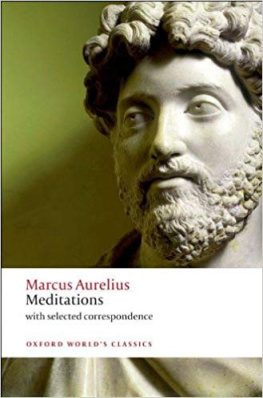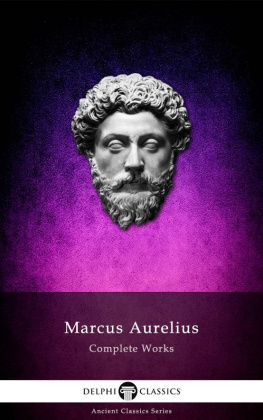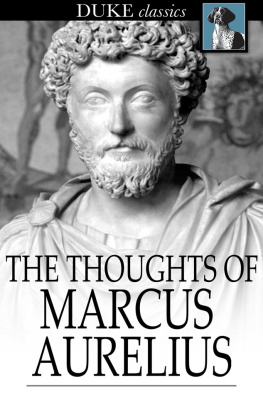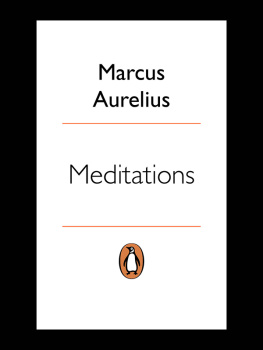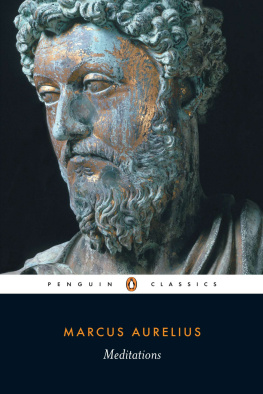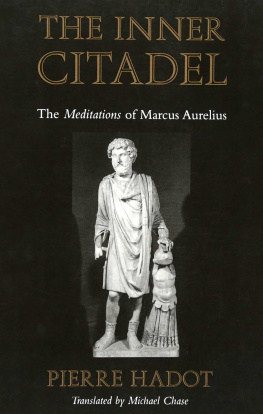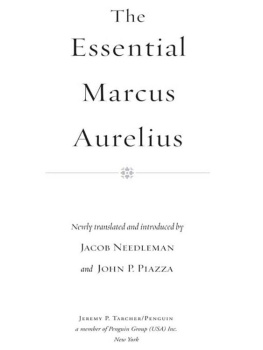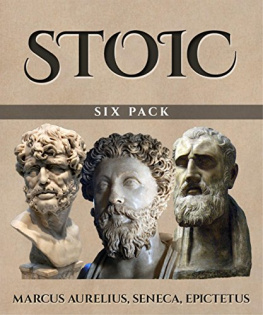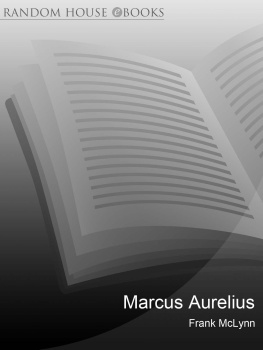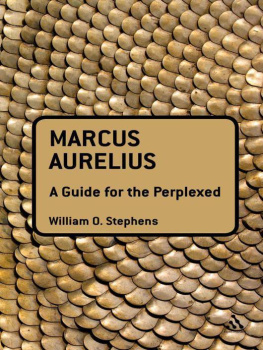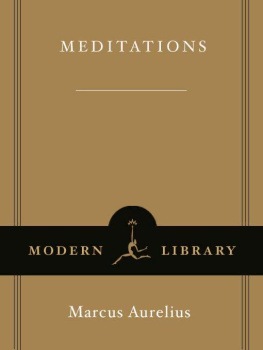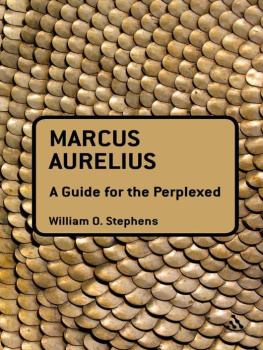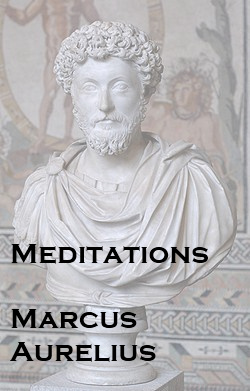Marcus Aurelius - Meditations: With Selected Correspondence (Oxford World’s Classics)
Here you can read online Marcus Aurelius - Meditations: With Selected Correspondence (Oxford World’s Classics) full text of the book (entire story) in english for free. Download pdf and epub, get meaning, cover and reviews about this ebook. year: 2011, publisher: Oxford University Press, genre: Romance novel. Description of the work, (preface) as well as reviews are available. Best literature library LitArk.com created for fans of good reading and offers a wide selection of genres:
Romance novel
Science fiction
Adventure
Detective
Science
History
Home and family
Prose
Art
Politics
Computer
Non-fiction
Religion
Business
Children
Humor
Choose a favorite category and find really read worthwhile books. Enjoy immersion in the world of imagination, feel the emotions of the characters or learn something new for yourself, make an fascinating discovery.
- Book:Meditations: With Selected Correspondence (Oxford World’s Classics)
- Author:
- Publisher:Oxford University Press
- Genre:
- Year:2011
- Rating:3 / 5
- Favourites:Add to favourites
- Your mark:
Meditations: With Selected Correspondence (Oxford World’s Classics): summary, description and annotation
We offer to read an annotation, description, summary or preface (depends on what the author of the book "Meditations: With Selected Correspondence (Oxford World’s Classics)" wrote himself). If you haven't found the necessary information about the book — write in the comments, we will try to find it.
Do not act as if you had ten thousand years to live ... while you have life in you, while you still can, make yourself good.
The Meditations of Marcus Aurelius (AD 121-180) is a private notebook of philosophical reflections, written by a Roman emperor probably on military campaign in Germany. In short, highly charged comments, Marcus draws on Stoic philosophy to confront challenges that he felt acutely, but which are also shared by all human beings - the looming presence of death, making sense of ones social role and projects, the moral significance of the universe. They bring us closer to the
personality of the emperor, who is often disillusioned with his own status and with human activities in general; they are both an historical document and a remarkable spiritual diary.
This translation by Robin Hard brings out the eloquence and universality of Marcus thoughts. The introduction and notes by Christopher Gill place the Meditations firmly in the ancient philosophical context. A selection of Marcus correspondence with his tutor Fronto broadens the picture of the emperor as a person and thinker.
ABOUT THE SERIES: For over 100 years Oxford Worlds Classics has made available the widest range of literature from around the globe. Each affordable volume reflects Oxfords commitment to scholarship, providing the most accurate text plus a wealth of other valuable features, including expert introductions by leading authorities, helpful notes to clarify the text, up-to-date bibliographies for further study, and much more.
**
Amazon.com ReviewOne measure, perhaps, of a books worth, is its intergenerational pliancy: do new readers acquire it and interpret it afresh down through the ages? The Meditations of Marcus Aurelius, translated and introduced by Gregory Hays, by that standard, is very worthwhile, indeed. Hays suggests that its most recent incarnation--as a self-help book--is not only valid, but may be close to the authors intent. The book, which Hays calls, fondly, a haphazard set of notes, is indicative of the role of philosophy among the ancients in that it is expected to provide a design for living. And it does, both aphoristically (Think of yourself as dead. You have lived your life. Now take whats left and live it properly.) and rhetorically (What is it in ourselves that we should prize?). Whether these, and other entries (Enough of this wretched, whining monkey life.) sound life-changing or like entries in a teenagers diary is up to the individual reader, as it should be. Hayss introduction, which sketches the life of Marcus Aurelius (emperor of Rome A.D. 161-180) as well as the basic tenets of stoicism, is accessible and jaunty. --H. OBillovich
ReviewThe Meditations remain, unendingly moving and inspiring, the communings with itself of a thoughtful and devout soul upon the greatest of human issues. They are not, and do not claim to be, a work of original philosophy, nor yet a systematic exposition of a tradition of thought. They speak for themselves. Only by the slenderest of chances have they come down to the modern world at all . . . but the number of times they have been published . . . and above all translated into a vast variety of tongues, would have filled their author with amazement. from the Introduction by D. A. Rees
Marcus Aurelius: author's other books
Who wrote Meditations: With Selected Correspondence (Oxford World’s Classics)? Find out the surname, the name of the author of the book and a list of all author's works by series.

